
Charlie Paterson, partner at PA Consulting, explains how mixed signals on FDA risk tolerance are accelerating the globalization of clinical trial programs and reshaping how sponsors align development activities worldwide.

Charlie Paterson, partner at PA Consulting, explains how mixed signals on FDA risk tolerance are accelerating the globalization of clinical trial programs and reshaping how sponsors align development activities worldwide.

Miriam Dervan, founder & CEO of mdgroup, explains how treating patient experience as a strategic investment—rather than a secondary consideration—changes how sponsors, sites, and operational teams design and deliver clinical trials.

Mike Wenger, chief innovation officer at CRIO, discusses how different site types—from academic medical centers to independent research sites—require distinct eSource approaches, and why aligning technology with site workflows is critical to study execution.

Charlie Paterson, partner at PA Consulting, describes how FDA capacity constraints are creating uncertainty from initial submissions through late-stage approval, elongating timelines and influencing global development strategies.

Charlie Paterson, partner at PA Consulting, outlines how limited FDA guidance on innovative designs, decentralized models, and digital endpoints is forcing clinical operations teams to recalibrate expectations and minimize regulatory risk.

Charlie Paterson, partner at PA Consulting, discusses how fewer new guidance updates are pushing sponsors to rely on historical precedents and non-US standards when making trial design and operational decisions.
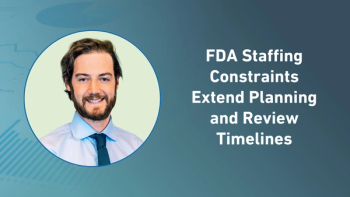
Charlie Paterson, partner at PA Consulting, explains how reduced FDA capacity and staff turnover have led to longer regulatory timelines, increased preparation for agency interactions, and delayed feedback during early trial planning.

See how real-world evidence is enabling smaller, smarter, and more efficient trial designs through hybrid models, external comparators, and continuous patient monitoring—while preserving the role of traditional clinical trials.
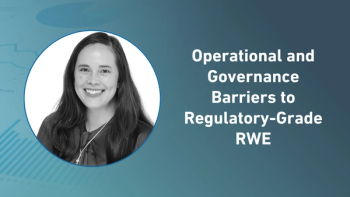
Assess the data quality, linkage, transparency, and auditability challenges that sponsors must overcome to make de-identified real-world evidence fit for regulatory submissions.
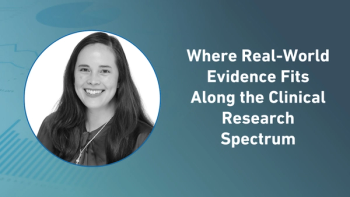
Understand where real-world evidence most effectively complements or substitutes traditional trial data, from post-market surveillance and label expansion to challenging areas such as rare disease research.

Explore how large-scale, de-identified real-world datasets enable more representative trial design, improve site selection, and support patient identification beyond the limits of traditional clinical study populations.
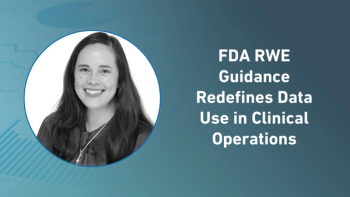
Examine how the FDA’s acceptance of de-identified real-world evidence shifts clinical operations workflows and why understanding the difference between pseudonymized and anonymized data is now critical for privacy, compliance, and evidence generation.
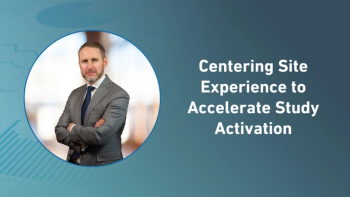
Consider how sponsor and CRO practices that prioritize site needs, clarity, and partnership can strengthen trust, sustain momentum, and speed activation without sacrificing the human experience.
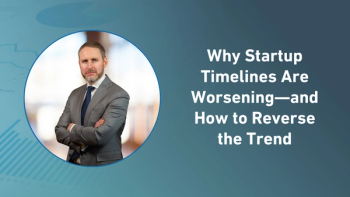
Analyze the operational pressures driving longer activation timelines, from protocol complexity to site competition, and learn how earlier, more flexible site engagement can restore momentum.
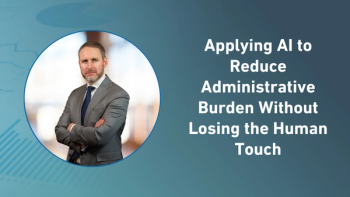
Examine how practical AI applications can streamline contracts and startup workflows while preserving the central role of investigators, site staff, and patient relationships in clinical research.
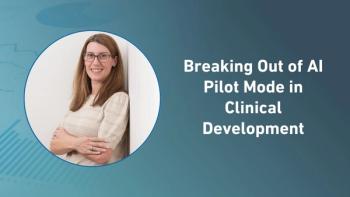
See what will distinguish sponsors that scale AI into core operations from those stuck in experimentation, and why redesigning underlying processes—not just optimizing workflows—is critical to realizing long-term value.
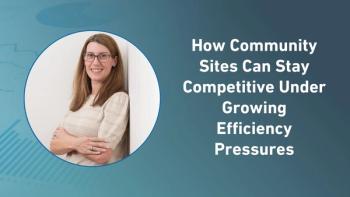
Examine the strategies community research sites can use to secure trial opportunities, from adopting AI-enabled workflows to proving verified access to underrepresented patient populations.
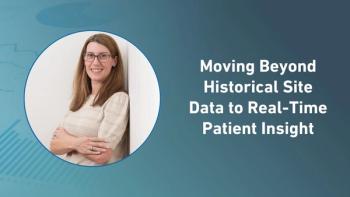
Learn how real-time patient eligibility data is reshaping trial planning and site selection, allowing sponsors to design more inclusive studies based on current patient reality rather than past performance.
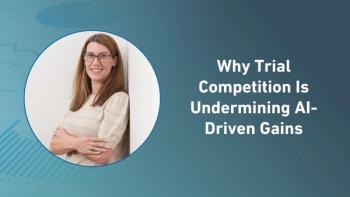
Unpack how rising competition for the same high-profile sites is slowing startup and enrollment—and what sponsors must change in their site strategies to ensure AI-enabled efficiencies translate into real-world impact.
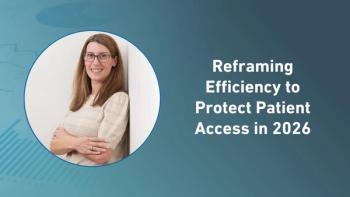
Explore how sponsors can recalibrate efficiency efforts to avoid overconcentrating trials at familiar sites and instead expand access through community partnerships, point-of-care research, and intentional outreach models.
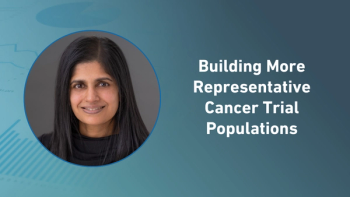
Assess the industry-level changes needed to ensure cancer clinical trial populations better reflect disease demographics, improve US-based enrollment, and support regulatory confidence in trial outcomes.
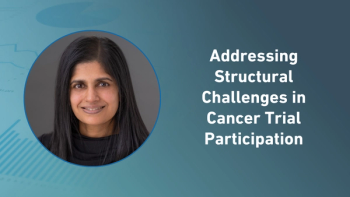
Understand which barriers to cancer trial participation remain most difficult to overcome, including geography and trial centralization, and how decentralized approaches and care delivery closer to home may help close access gaps.
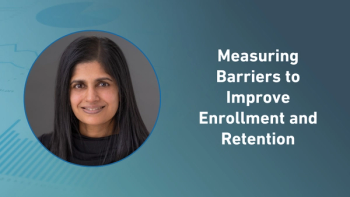
Explore early data from the ACTS program that reveal the volume and types of patient-reported barriers to cancer care and clinical trial participation, highlighting the critical role of support services in sustaining enrollment.

Funding uncertainty, legal and political pressures, trade policy shifts, site collaboration strategies, and leadership perspectives were central themes across Applied Clinical Trials’ most-watched video interviews.
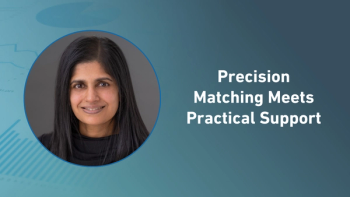
Learn why combining AI-enabled trial matching with transportation, lodging, and financial assistance is essential to turning trial eligibility into actual participation—and why matching alone is not enough.
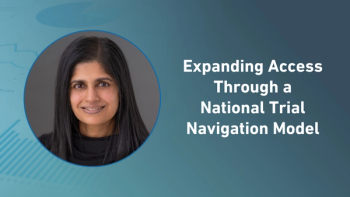
Examine how the American Cancer Society’s national ACTS expansion is designed to simplify trial discovery, reduce logistical barriers, and help patients, caregivers, and providers navigate cancer clinical trials through a centralized support model.
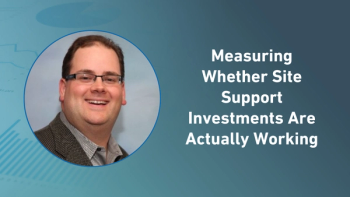
Review the performance, engagement, and satisfaction metrics sponsors and CROs should track to determine whether operational improvements are reducing burden and strengthening site relationships.
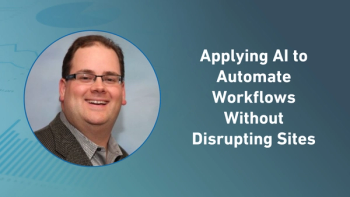
Learn how AI-enabled automation can streamline existing operational processes, reduce manual effort, and enhance efficiency while allowing sites to work as they do today.
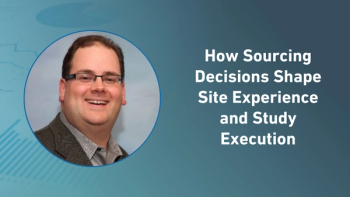
Analyze how functional sourcing, application strategy, and consistency across sponsors and CROs directly influence site workflows, execution efficiency, and long-term collaboration.
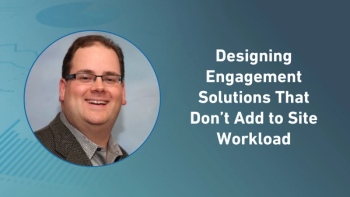
Explore why new tools should aim to remain burden-neutral before delivering efficiency gains, and how sponsors can introduce systems that benefit sites without disrupting daily trial management.